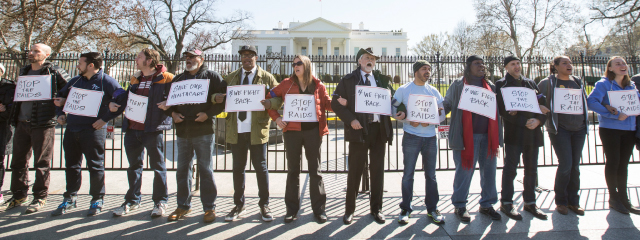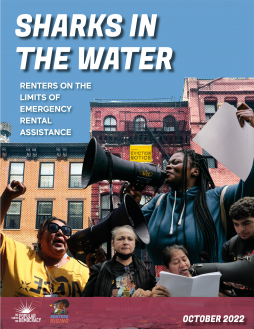SHARKS IN THE WATER
As of summer 2022, the National Equity Atlas reported that rent debt was at “crisis levels.” Renter households collectively owe almost, at minimum, a massive $15 billion in back due rent. These households are overwhelmingly occupied by low-income renters of color. The U.S. Treasury launched the Emergency Rental Program (ERA) in January 2021 to address the crisis the COVID-19 pandemic fueled for renters. Research on best practices and implementation of the program overall has more thoroughly surveyed and interviewed landlords, program staff, and legal aid attorneys. Such perspectives have been invaluable in streamlining the ERA process while providing meaningful staff perspectives on the challenges of distributing funds as fast as possible to those most in need. However, the voices and critical perspectives of renters have not sufficiently informed the implementation of this program to date. This report describes renters’ experiences to highlight outstanding problems with the ERA implementation process. In particular, we share how corporate landlords have abused the system for profit. Though rent relief was supposed to combat housing insecurity, many landlords took the money and still evicted renters or lied about receiving the ERA money to collect payouts from both ERA and renters.













